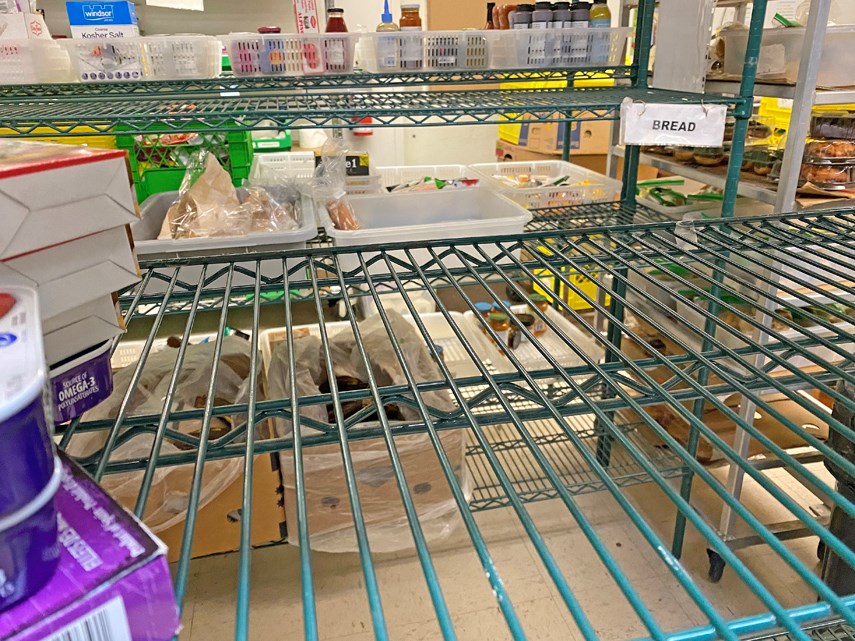Local non-profits and charities on the North Shore have had their operations significantly altered by the continuing COVID-19 pandemic.
But despite new rules on social distancing, many social service providers in the community are still continuing to find ways to deliver important programs and services to the people who need them.
Harvest Project, which usually supports upwards of 300 families facing challenges at home caused by either job less or poverty, has been forced to move its operation into the virtual sphere as social distancing – one of the most effective ways of curtailing the spread of novel coronavirus – has become the current norm.
“We’re extremely concerned for our clients because they’re the most exposed – be it housing shortages, affordability, their own family circumstances,” said Kevin Lee, development officer at Harvest Project.
For the time being, the organization is no longer accepting clothing or grocery donations, and staff have cancelled all in-person programs and are instead connecting with clients remotely.
One of Harvest Project’s biggest initiatives, its groceries program, has had to take on a different form too, according to Lee.
Normally, a client could come into the centre for a meeting and, following a consultation with a volunteer or staff member designed to help the individual mitigate some difficult life-circumstances they may be experiencing, they would then be able to acquire some fresh and non-perishable groceries stored in the centre’s food bank.
“We’ve been able to acquire grocery gift cards and we’re getting those into the hands of each client so that the client can go into the store and shop for themselves,” said Lee. “What we’re doing is very substantial. What it doesn’t do, of course, is give them those touchpoints on-site at Harvest Project where they would meet up with our staff and volunteers and we’d give them other supports.”
Last year, Harvest Project accepted $800,000 worth of food donations that were then given back to people in need on the North Shore, said Lee.
“We’re putting this plan in place with a view to the coming weeks and months,” he said. “All of us are facing the same issue.”
Hollyburn Family Services Society has luckily been able to keep its vital youth safe house and seniors at risk housing programs open during the COVID-19 crisis, but some of its programs that support people in less vulnerable positions have had to undergo a transformation.
“Some of our less vulnerable seniors we’re just trying to keep contact with them via telephone,” said Joy Hayden, innovation and engagement specialist with the society. “Some of the services are running as normal as possible and others we’re just trying to incorporate as many of the recommendations as possible to keep people safe.”
The society has also had to cancel two important fundraising events it had on the books for April and May, with Hayden noting that 50 per cent of the society’s budget comes from donations.
Capilano Community Services Society, which operates seniors, youth outreach, and medical equipment loan programs, has also had to adapt to the new reality of doing social service work while maintaining social, physical distance.
“Our mandate is to respond to the current emerging needs of our community,” noted Miki Nash, acting executive director at Cap Services.
Nash said it was dismaying to have to suspend the part of their seniors program where they take a group of older adults to the grocery store on the society’s bus, referring to it as a highlight for the group.
“It’s a real social aspect. Right now our staff is connecting with the seniors, we have a list of questions for them. We make sure they have groceries, if not we have volunteers that would be happy to go and pick it up,” said Nash. “Social isolation is a big issue.”
For its youth program, the society is working on ways to stay connected with youth, aged 10-24, remotely, such as over the phone or through Zoom, an online video conferencing program.
“The staff have adapted really well to meeting the current needs,” said Nash.
North Shore non-profits and charities are for the most part reliant on donations. Although COVID-19 has forced them to change their methods of service delivery, the need for financial support is still there, according to Lee, who says of the Harvest Project that people can support its new virtual grocery program by visiting their official website.
“We’ve got physical inventory that’s locked down right now so we’ve had to move to basically using the reserve of cash that we had for groceries and we’ve converted all of that to cards. We’re dispersing those as we speak. We’re going to need more of that.”
West Vancouver Foundation has recently stepped in with a new emergency fund to provide a centralized place for people to donate to charitable organizations which are helping those affected by the COVID-19 pandemic.
The fund has already brought in $100,000 with the goal of raising $500,000 to support the first wave of grants, according to foundation vice president Elaine McHarg.
“Our vulnerable population is going to enlarge in ways that we can’t even imagine right now,” said McHarg.
Individuals and corporations are encouraged to donate to the emergency fund at westvanfoundation.ca/north-shore-covid-19-coronavirus-emergency-response-fund. Charitable organizations are also encouraged to apply for a grant on the foundation’s website.
McHarg noted that the goal of the emergency fund is to support non-profit and charitable organizations in the fight against COVID-19 across all of the North Shore.
“This virus does not know jurisdictional barriers,” she said.



